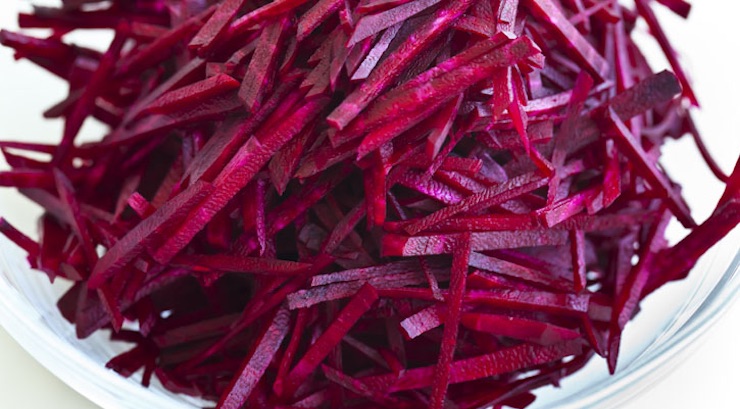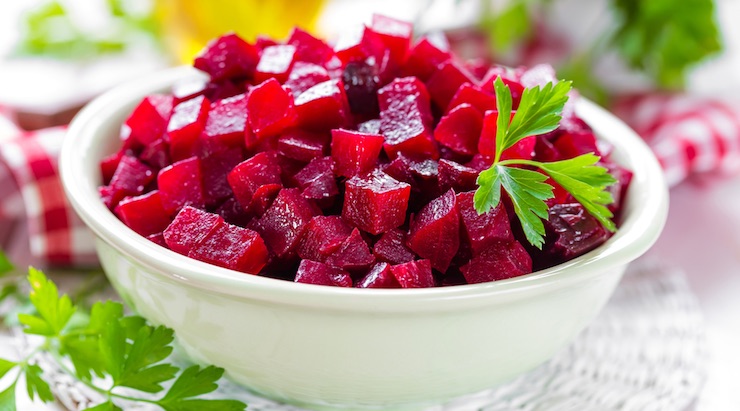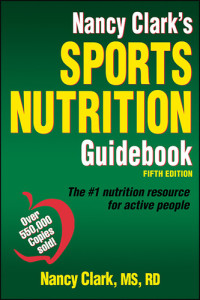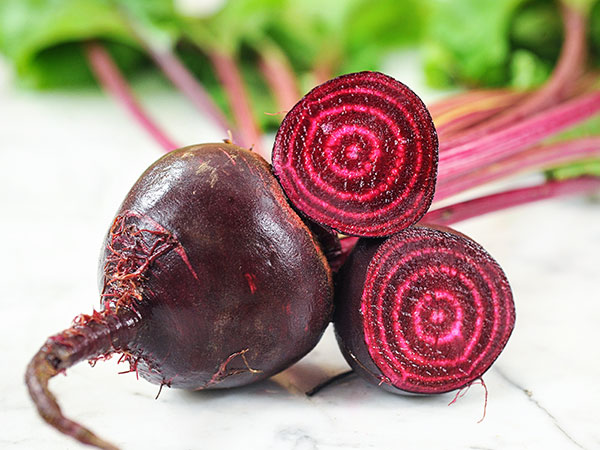Can Nutrient-Dense Beets Improve Athletic Performance?
Smart soccer players of all ages are beginning to realize the power of food and how nutrients can actually improve athletic performance. Soccer players can benefit from healthy diets rich in vegetables and beets are a great example. With so many ways to eat beets, how can you leave them out of your healthy diet?
Today, many elite athletes are swearing by the endurance-enhancing power of beet juice. Is it the new superfood for soccer players?

SoccerToday’s Nancy Clark often attends the Academy of Nutrition and Dietetics’ Food & Nutrition Conference and Expo and remembers the impact of beets. Here is a report on the value of beets and how they may help you run faster.
Soccer Players: Eat Your Beets!
Beets are powerful nitrate-rich foods that can enhance both athletic performance and your overall health.
These vegetables are rich sources of dietary nitrate, a potent food compound that converts into nitric oxide (NO), a gas.
It signals blood vessels to dilate (relax), which improves blood flow. For you, a soccer player, improved blood flow enables more oxygen to get to your muscles. Research suggests pre-exercise beets or beet juice can enhance performance.

The average American consumes 40 to 100 mg nitrates a day, which is substantially less than the 300 to 500-mg. the dose recommended to improve performance.
Beets can improve muscle efficiency and quite simply, can make you feel good.
Yet, competitive soccer players can easily consume that dose with an average spinach salad topped with a beet or two (if you can tolerate that for a pre-exercise meal.)
Other foods contain nitrates, too .. so a diet with arugula, romaine lettuce and other leafy greens contributes to a strong nitrate intake on a daily basis. That is the goal. Another good reason to eat a sports diet rich in veggies and fruits!
Real Good Nutrition

In the future, we all may enjoy genetic testing for personalized nutritional guidance — but until then, there is ample information on nutrient-dense foods that can help your performance.
Beetroot offers vitamins A, B, and C; antioxidants beta-carotene and beta-cyanine; folic acid, magnesium, potassium, phosphorous, iron, and fiber.
The red pigment in beetroot is known as betacyanins and works as antioxidants and anti-inflammatories.
Many people believe the more beetroot juice consumed the better to help reach peak performance and even lower blood pressure. But be careful, too much of anything can upset your system. Remember, when food, such as a vegetable like beets are cooked, many of the nutrients can be reduced. Raw foods, like beet juice, are often better for you.
Effects of Beetroot Juice Supplementation on Cardiorespiratory Endurance in Athletes. A Systematic Review
This review states clearly, “Beetroot juice increases levels of nitric oxide (NO), which serves multiple functions related to increased blood flow, gas exchange, mitochondrial biogenesis and efficiency, and strengthening of muscle contraction.”
SIDEBAR: Nutritional and medical advice changes with new discoveries and interpretations. Always check with your medical provider and/or nutritionist for what is best for you and your family. And research and read information on nutrition!

 Boston-area sports nutritionist Nancy Clark MS RD counsels both casual exercisers and competitive athletes in her private practice in Newton MA (617-795-1875). She is the author of the best-selling Nancy Clark’s Sports Nutrition Guidebook and co-author with Gloria Averbuch of Food Guide fr Soccer: Tips and Recipes from the Pros.
Boston-area sports nutritionist Nancy Clark MS RD counsels both casual exercisers and competitive athletes in her private practice in Newton MA (617-795-1875). She is the author of the best-selling Nancy Clark’s Sports Nutrition Guidebook and co-author with Gloria Averbuch of Food Guide fr Soccer: Tips and Recipes from the Pros.






